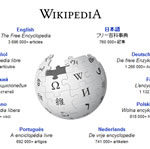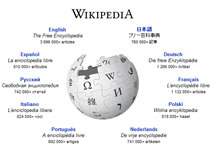
Wikipedia, the online encyclopedia that is written entirely by volunteers and allows anyone to edit its entries, is losing contributors, its founder complained Aug. 4, even as professors at some universities encourage their students to submit entries to the site.
Speaking with The Associated Press on the sidelines of the website’s annual conference, Wikipedia founder Jimmy Wales said the nonprofit company that runs the site is scrambling to simplify editing procedures in an attempt to retain volunteers.
Read more about Wikipedia in higher education…
Software can help ‘proofread’ Wikipedia
“We are not replenishing our ranks,” said Wales. “It is not a crisis, but I consider it to be important.”
Administrators of the internet’s fifth most visited website are working to simplify the way users can contribute and edit material. “A lot of it is convoluted,” Wales said. “A lot of editorial guidelines … are impenetrable to new users.”
Wikipedia has more than 3 million entries but has been marred by subjective entries and pranks. Even so, Wikipedia cites studies that compare the website’s accuracy favorably to more conventional encyclopedias, while other studies give it lower marks.
Despite Wikipedia’s wide-reaching popularity, Wales said the typical profile of a contributor is “a 26-year-old geeky male” who moves on to other ventures, gets married and leaves the website.
Other contributors leave because, 10 years after the website was launched, there are fewer new entries to add, he said.
By March, Wikipedia had about 90,000 active contributors. The goal is to tack on another 5,000 by June of next year, said Sue Gardner, executive director of the nonprofit that runs the website.
Among its steps, Gardner said the nonprofit is expanding a program that encourages university professors to assign the writing of Wikipedia entries to their students, particularly in India, Brazil, Canada, Germany and Britain.
The website has also introduced a new feature called WikiLove aimed at keeping users engaged.
Visitors to the website select a graphic icon — choices include kittens, stars and the Mediterranean dessert baklava — and send it with a message of appreciation to a page contributor as encouragement. “It’s like a ‘like’ on Facebook,” Wales said.
The seventh annual Wikipedia conference, hosted this year in Israel, was attended by some 650 Wikipedia contributors and enthusiasts from 56 countries.
Two contributors attended from Venezuela and Indonesia, though neither country has diplomatic relations with Israel. A Palestinian from the West Bank also attended, with Israeli military permission.
At least one professor has published research defending Wikipedia’s accuracy, even though many professors — and some entire universities — ban the use of Wikipedia in homework or research projects.
Like many educators, Raymond MacDermott, an associate professor of economics at Virginia Military Institute in Lexington, Va., said Wikipedia is a good “starting point” for students delving into an unfamiliar topic, but the vast encyclopedia shouldn’t be the only resource a student cites in a research paper.
“I don’t dock points for students who use Wikipedia, but I might ridicule them for it,” MacDermott said. “Students still need to take [Wikipedia] with a grain or salt.”
Yaacov Lawrence, an assistant professor in Thomas Jefferson University’s Department of Radiation Oncology in Philadelphia, examined 10 types of cancer and compared Wikipedia’s information to statistics in the National Cancer Institute’s Physician Data Query, a peer-reviewed oncology database.
About 2 percent of the information from both web-based resources differed from textbook sources, Lawrence found. Lawrence used algorithms to judge the readability of each cancer entry, and based on word length and sentence length, the Wikipedia entries were much more difficult to comprehend.
Two University of Denver instructors last year had the campus’s journalism students writing Wikipedia entries as part of a curriculum that stresses online writing and content creation as readers move to the web en masse.
Students in the university’s Media, Film, and Journalism Studies Department composed 24 Wikipedia articles in 2010, covering everything from the gold standard to San Juan Mountains to bimettalism, an antiquated monetary standard.
Wikipedia’s leaders assured the audience that the website’s reputation is strong — no longer drawing the ire of teachers and journalists claiming that its entries are unreliable.
“Making fun of Wikipedia is so 2007,” Gardner said to a cheering crowd, quoting what a French journalist recently told her.
Even so, Wales said Wikipedia must be used with care.
“Particularly be careful if we say ‘the neutrality of this article is disputed,’ or ‘the following section doesn’t cite any sources.’ That’s probably a good warning,” he said.
- Extron AV Switching, Streaming, and Control Systems Aid Higher Learning at Idaho’s First Medical School - June 1, 2021
- Extron XTP, Streaming, and Control Systems Empower Point Park University’s Varsity Esports Program - June 1, 2021
- Extron NAV Series Delivers AVoIP Throughout Allied Health Veterans Hall at UNC Wilmington - June 1, 2021
